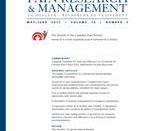Abstract
Childbearing is a common occurrence throughout the world. Many women, regardless of their differences will give birth at least once in their life. The question is, how does this affect the women, and how is pain managed? Labour is an emotional and physical experience and therefore pain needs to be managed both psychologically and physiologically. A well rounded approach needs to be undertaken in order to prepare a women for labour in order to lessen the painful experience and heighten feelings of satisfaction.
Labour pain has been said to be '...a major pain experience that accompanies the normal physiologic process of giving birth' (Callister, Khalaf, Semenic, Kartchner & Vehvilainen-Julkunen, 2003). The normal physiological changes that a women goes through during labour (such as contractions and the dilating of the uterus) all contribute to the pain experienced. However, aside from the physiological pain, Childbirth can also seen to be '...a
profound psychosocial experience...childbirth may be viewed as a test of womanhood, a test of personal competence, a peak experience, and the first act of motherhood' (Callister et Al, 2003). Beecher highlighted the fact that the experience of pain 'is dependent both upon
the "original sensation" and the psychic processing of this original sensation.' (cited: Nettlebladt, Fagerstrom & Uddenberg, 1976). When analysing labour pain we therefore need to understand that a person's psychological state can also contribute to the experience of pain. It has been documented that 'Significant variances in labour pain have been associated with confidence in the woman's ability to handle labour, preparation for childbirth, and the physiologic intensity of labour' (Callister et Al, 2003). These abilities and confidences mentioned provide us with a good example of the subjective component of labour pain, on top of the objective or physiological component of labour pain.
It is well acknowledged that...


